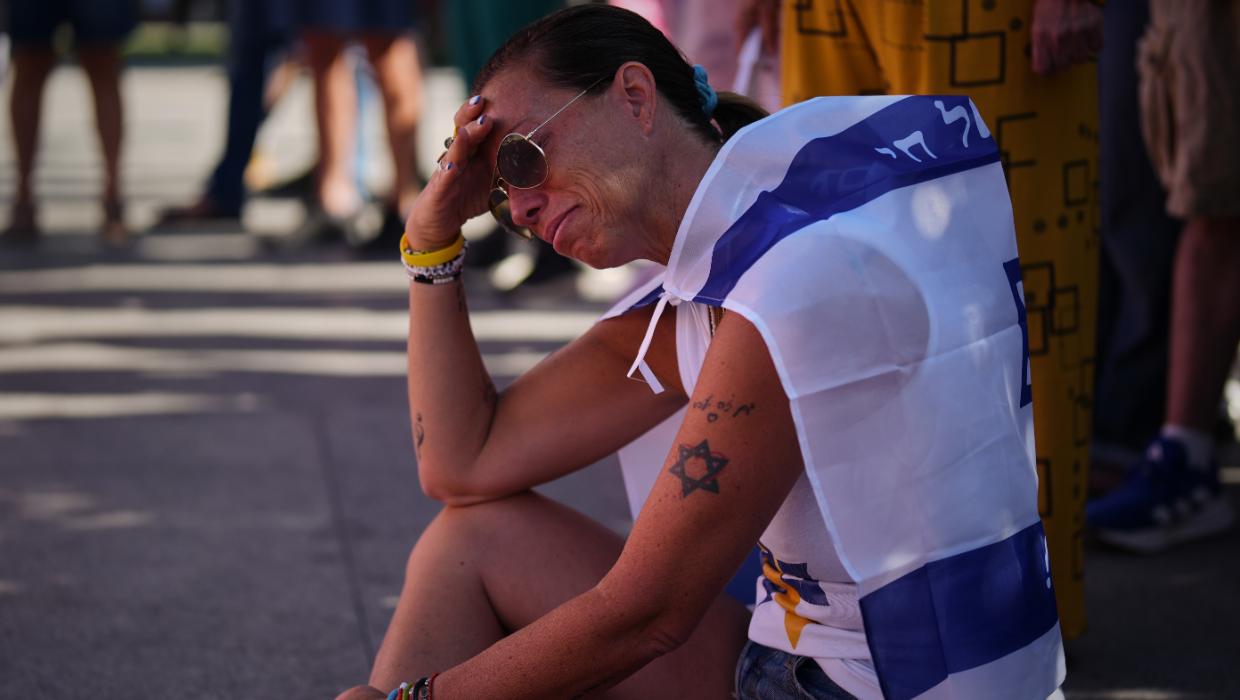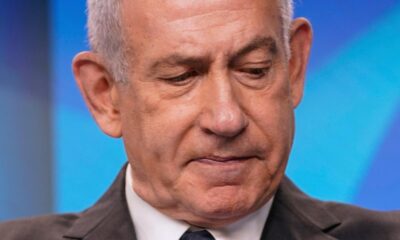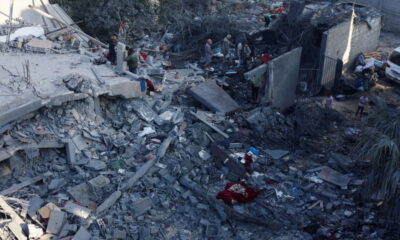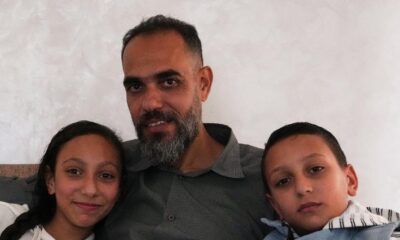Politics
Israel Faces Division Two Years After October 7 Attacks

Two years after the tragic attacks on October 7, 2023, Israel remains a nation marked by profound division. The split among its citizens reflects a growing discontent with Prime Minister Benjamin Netanyahu and his government’s inability to secure a ceasefire that would facilitate the release of remaining hostages. Many Israelis believe that the government’s handling of the situation has exacerbated the tensions within the country.
The atmosphere in Israel has been charged, with protests and public outcry against Netanyahu’s leadership intensifying. Critics argue that his approach to the ongoing crisis has failed to address the pressing needs of the nation, particularly regarding the hostages still held by militant groups. The calls for a ceasefire have grown louder, with families of the hostages expressing frustration and anguish over the lack of progress in negotiations.
Public Sentiment and Political Fallout
Public sentiment in Israel is deeply polarized, with significant sections of society advocating for a change in leadership. Many citizens hold Netanyahu accountable for not pursuing diplomatic avenues that might have led to a resolution of the conflict. The growing dissatisfaction has resulted in a series of protests across major cities, where demonstrators demand accountability and a clear strategy for peace.
In contrast, Netanyahu’s supporters argue that the prime minister is navigating a complex and dangerous geopolitical landscape. They maintain that any concessions could jeopardize national security and undermine Israel’s position in the region. This ongoing debate reflects a broader struggle within the Israeli society about the best path forward in a time of crisis.
International Reactions and Implications
Internationally, the situation in Israel has drawn concern from various governments and organizations. Calls for a ceasefire have come from multiple fronts, including humanitarian organizations that emphasize the need to prioritize the safety of civilians and hostages. The United Nations has also weighed in, urging all parties involved to engage in dialogue and seek a peaceful resolution.
The implications of the division within Israel extend beyond its borders. The ongoing turmoil has the potential to influence regional stability, affecting relations with neighboring countries and complicating international diplomatic efforts. As Israel navigates this challenging period, the focus remains on how the government will address the calls for peace and the urgent needs of its citizens.
As the anniversary of the October 7 attacks approaches, the path forward for Israel remains uncertain. The deep divisions within the nation pose significant challenges, not only for Netanyahu’s leadership but also for the future of Israeli society as it seeks to heal and unite amidst ongoing strife.
-

 World1 week ago
World1 week agoPrivate Funeral Held for Dean Field and His Three Children
-

 Top Stories2 weeks ago
Top Stories2 weeks agoFuneral Planned for Field Siblings After Tragic House Fire
-

 Sports3 months ago
Sports3 months agoNetball New Zealand Stands Down Dame Noeline Taurua for Series
-

 Entertainment3 months ago
Entertainment3 months agoTributes Pour In for Lachlan Rofe, Reality Star, Dead at 47
-

 Entertainment2 months ago
Entertainment2 months agoNew ‘Maverick’ Chaser Joins Beat the Chasers Season Finale
-

 Sports3 months ago
Sports3 months agoSilver Ferns Legend Laura Langman Criticizes Team’s Attitude
-

 Sports1 month ago
Sports1 month agoEli Katoa Rushed to Hospital After Sideline Incident During Match
-

 World2 weeks ago
World2 weeks agoInvestigation Underway in Tragic Sanson House Fire Involving Family
-

 Politics2 months ago
Politics2 months agoNetball NZ Calls for Respect Amid Dame Taurua’s Standoff
-

 Top Stories2 weeks ago
Top Stories2 weeks agoShock and Grief Follow Tragic Family Deaths in New Zealand
-

 Entertainment3 months ago
Entertainment3 months agoKhloe Kardashian Embraces Innovative Stem Cell Therapy in Mexico
-

 World4 months ago
World4 months agoPolice Arrest Multiple Individuals During Funeral for Zain Taikato-Fox





















